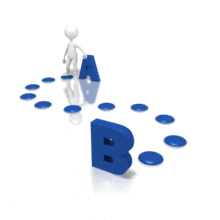Welcome to this page. It is a special page for Dutch Brainwash Graduates and here I would like to tell a bit more about something that I like to call Dutch in 3D.
In the Dutch Brainwash you learned many things. Hopefully you have embraced the idea that right now – with all the knowledge that you have – you can virtually talk about any subject that you like.
You know how to create sentences. I hope that you remember that there is a strict and logical procedure. You know that every sentence needs an action figure ( a person or a noun) that you need some verbs, you need to put verbs in the right form and you need to know where to put those verbs in a sentence….
You also discovered that it is easy to explode your vocabulary, if you think in logical and structured ways and that real magic happens when you combine it with visual thinking and creativity….
Sure… you may have noticed that sometimes speaking Dutch is easy and that Dutch can still be a huge challenge! What you must have noticed is that Dutch people still use many sentence constructions and words that were not covered in the Brainwash.
What you learned in the Brainwash is a system that is relatively simple, so that at least you have been able to start to talk. It is very action driven. The main purpose is to make sure that you talk first, learn loads of new stuff and that while speaking with other people you also pick up many other things….
The problem is that when people feel that they have too many choices, then they tend to analyze to much and that is never ever a good idea. If you keep it simple, certainly in the beginning, then at least you can start to speak about anything that you want anyway…
And then… once you feel more relaxed and more in control, you must also realize that something is missing… the set of skills that you need for both grammar and vocabulary is not complete yet.
Then there is also another paradox. You may have noticed that certainly when Dutch people talk about simple things, when they do small talk, all of a sudden you’ll hear many more ‘complex’ and ‘advanced’ constructions. The strange thing is that to the Dutch mind these constructions are not complex at all, most people would not even think about them, because they feel so normal. Therefore, even if Dutch people try to simplify their way of speaking for you, what they’ll still do is speak Dutch on their level, which for you is the second level, the more advanced level.
So sooner or later you may feel that it is time to go to a whole new level again. I like to call it: taking the step to see Dutch in 3D.
Once you see and hear Dutch in 3D, you’ll see the complete picture and and you will hear it in full depth.
It is important that if you really like to live your Dutch life to the fullest and if you want to have full understanding of everything when you lead your life in Dutch, then some important key components must still be added to your Dutch. Certainly if you want to have easy conversations and if you want to do small talk!
Here are some key components that will turn your Dutch into a rich 3D experience!
1 Time dimensions
In the Brainwash we focused mainly on the here and now and the future. You even learned a double future!
You learned how to talk about the past, while using mainly the present tense. It was a great way of cheating but… if you really like to go all the way with everything that you do in Dutch, then you must master past tense!
The great thing is that once you have gained some experience with speaking Dutch, learning the past tense will be a lot easier. A couple of days will do the trick!
The only thing is that you understand a bit more about time dimensions. For example, if you use the past tense it does not necessarily mean that something happened in the past. Or… it matters how far back you go to the past. There is past that is really past, and there is also recent past which is closer to now. Also, you can combine the past with the future. Tomorrow is the future for today, but next week tomorrow will be in the past. Don’t worry if this still sounds a bit complex to you, as long as you understand that even in simple conversations time plays an important role. You have to learn how to play with different time dimensions in Dutch.
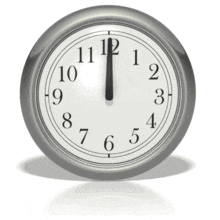
1 Time dimensions
In the Brainwash we focused mainly on the here and now and the future. You even learned a double future!
You learned how to talk about the past, while using mainly the present tense. It was a great way of cheating but… if you really like to go all the way with everything that you do in Dutch, then you must master past tense!
The great thing is that once you have gained some experience with speaking Dutch, learning the past tense will be a lot easier. A couple of days will do the trick!
The only thing is that you understand a bit more about time dimensions. For example, if you use the past tense it does not necessarily mean that something happened in the past. Or… it matters how far back you go to the past. There is past that is really past, and there is also recent past which is closer to now. Also, you can combine the past with the future. Tomorrow is the future for today, but next week tomorrow will be in the past. Don’t worry if this still sounds a bit complex to you, as long as you understand that even in simple conversations time plays an important role. You have to learn how to play with different time dimensions in Dutch.

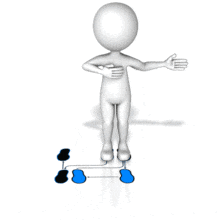
2 Position and movement
In the Dutch Brainwash you already saw prepositions. They are important in each and every language and certainly in Dutch. The add extra meanings in Dutch, certainly to nouns and verbs. The great news is that there is a hidden logical structure that you can learn intuitively. Once you know the impact of words that show position and movement (preposition) you’ll understand a lot more!
3 Move from black- white to 50 shades of gray!
In the beginning, whenever you learn a language you just start with simple words. For example you have duur & goedkoop, langzaam & snel. Knowing the exact opposites is the easiest way to communicate anyway, and whenever you learn something new you’ll discover many more subtleties.
For example, in the beginning you have tafel & stoel and although they both belong to meubels (furniture), the difference is very clear. On the second level you’ll learn more words for things that do not always a short difference. For example, you have lopen, wandelen, rennen, hardlopen, joggen, sprinten, slenteren… Can you see that for each and every activity that you do, you have to use and move your feet forward? The reason that on the second level more new words show up means that you are on a more advanced level.
4 Empowering your inner child
Strangely enough, it is relatively easy to sound like an intellectual in Dutch. Many words are easy for you that are hard for children to understand. Prioriteit may be an easy word for you, but children would rather use voorrang. For children eentonig makes much more sense that monotoon.
In the Brainwash we already played with ‘Germanizing’. In a way it is a fun process, because all you need to do is to play with the words that you already know. Decoding is one of the most important skills that you could ever have and for going to a much higher level, all you need to do is to hone and to refine all those decoding skills that you already have. Once again, it is a fun process, all you have to do is experiment, play and test and then all of a sudden thousands of new words will all of a sudden make sense to you!
5 Really loooooong anaconda sentences
In the Brainwash you already learned how to create anaconda sentences and now it is time to go all the way! First of all, you’ll learn how to say many more things such as: I check my Facebook while I am thinking & I’ll do anything that you like, after that you have paid me €1000.0000
Dutch people make long sentences all the time, so right now, you’ll find it a lot easier to understand them and… you’ll be speaking with much longer sentences yourself!
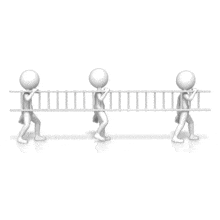
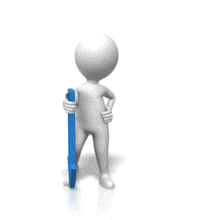
6 Speaking more efficiently
Let’s face it… Dutch people are lazy bastards… they do not like to say the same words again and again. They often replace many words with words such as er, daar, ze, waarop etc… For example, you can say: I look forward to my holiday and you can also say: I am looking forward to it. Replacing words or referring to words is an important skill that you need to master. Once you understand the logical system – which is extremely logical – much more will make much more sense! Here is one important warning: if you do it wrong, you’ll confuse people all the time! Chances are high that they really won’t know what you are talking about… Luckily there is a logical system that is relatively easy to master!
7 Expect more surprises!
Last but not least, chances are high that there are many specific things about Dutch that you did not even notice. But… once you start to see it, it will make sense and with a minimum of effort you’ll come across as far more fluent, skilled and intelligent!
Last but not least, here is an important message: it is very easy to feel discouraged when you hear or see things that you do not understand yet. Make sure that never ever you blame yourself! It would be great if you could become curious instead… You are almost there, you just need to take one more step!
If you like to take your Dutch to a whole new level again, I would be happy to guide again on an amazing Dutch language adventure in September! If you like this idea, then simply send me a mail and write: hey Albert! I like the idea of a higher level!
